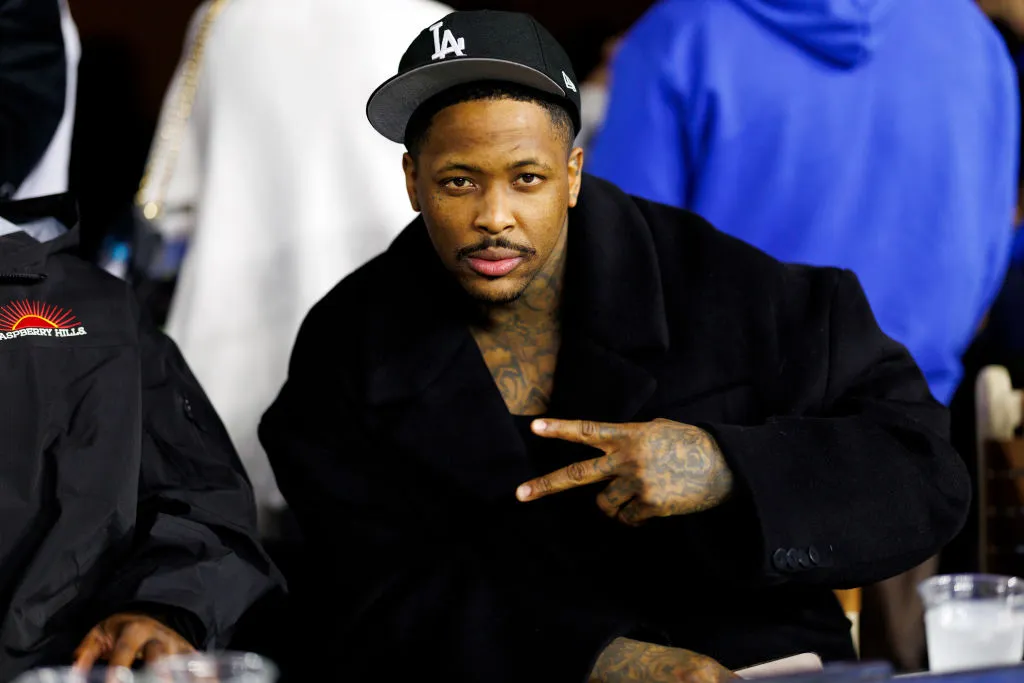Before he was selling out arenas and racking up Grammy Awards, The Weeknd—real name Abel Tesfaye—was just a teenage retail worker with a dream. On a candid appearance on The Tonight Show Starring Jimmy Fallon on Thursday, May 15, the Canadian R&B sensation peeled back the curtain on his early days, revealing how a job folding clothes at American Apparel unexpectedly became the turning point in his career.
Now an international superstar with chart-topping hits and award-winning albums, The Weeknd opened up to host Jimmy Fallon about what truly pushed him to pursue music full-time.
“I was working at American Apparel. I was like 19; I was trying to fold clothes,” he shared with a laugh. “People working at American Apparel started playing the music. And that was the validation I needed. I was like, ‘I’m quitting this job, and this is mine.’ Yeah, it’s my full-time life now.”
The statement wasn’t just a sentimental throwback—it revealed the pivotal moment in Tesfaye’s life where passion collided with purpose, launching one of the most enigmatic and influential careers in modern music.
The Mystery Artist Whose Music Went Viral… While He Was on the Clock
What made the moment even more powerful was The Weeknd’s unique approach to early fame. At the time, no one knew what he looked like. He was famously anonymous, releasing music on platforms like YouTube and Tumblr without showing his face.
“No one even knew it was me. I’d hear my songs being played at work, and they didn’t know I was the artist,” he recalled. “That’s when I knew I had something real. That was my sign.”
At a time when most new artists were trying to go viral by being seen, Tesfaye did the opposite. He let his haunting voice, moody melodies, and emotionally raw lyrics do the talking—and it worked. His mystery became his brand, and the buzz only grew louder.
From Stockroom to Studio: The Weeknd’s Boss Became a Creative Ally
What might surprise fans even more is what happened after The Weeknd quit his retail job. Rather than cutting all ties with his former employer, he kept one very important connection—his boss.
“My boss is actually one of my creative directors,” The Weeknd revealed. “He does all my typography for my albums now.”
Talk about a glow-up. From overseeing Tesfaye’s shifts to helping shape the visual identity of his albums, the evolution from manager to creative collaborator reflects The Weeknd’s loyalty to those who believed in him early on.
Spotlight on the Silver Screen: The Weeknd’s Film Hurry Up Tomorrow
While his humble beginnings made headlines, The Weeknd was also on Fallon’s show to promote his highly anticipated film debut, Hurry Up Tomorrow. The psychological thriller hits theaters Friday, May 16, and stars Jenna Ortega and Barry Keoghan, two of Hollywood’s hottest rising talents.
Described as dark, emotionally gripping, and genre-bending, Hurry Up Tomorrow marks a new creative chapter for the multi-talented artist. Known for cinematic storytelling in his music videos and live performances, The Weeknd is now pushing boundaries in the world of film.
“It’s something I’ve always wanted to do,” he said. “Music and film have always been connected for me. This is just another way to tell stories.”
New Music, New Era: The Weeknd Performs “Baptized in Fear” and “Open Hearts”
The night wasn’t just about revelations and film talk. Tesfaye lit up the stage with live performances of two emotionally charged tracks from his new album: “Baptized in Fear” and “Open Hearts.”
Fans were quick to react on social media, praising the soulful depth and cinematic sound of the new songs. Both tracks explore themes of emotional rebirth, love, and resilience—hallmarks of The Weeknd’s lyrical identity.
His performance on The Tonight Show was described as “electric,” “introspective,” and “next-level artistry,” signaling that his upcoming album could be another evolution in his ever-morphing musical journey.
The Rise of The Weeknd: From Internet Obscurity to Grammy Glory
Since his underground debut in 2010 with mixtapes like House of Balloons, Thursday, and Echoes of Silence, The Weeknd has carved a unique space in the global music scene. With hits like “Blinding Lights”, “Can’t Feel My Face”, and “Starboy”, he’s sold over 75 million records, headlined the Super Bowl LV Halftime Show, and won four Grammy Awards.
But what sets The Weeknd apart isn’t just his voice or his visuals—it’s the vulnerability he brings to every track. Songs about heartbreak, addiction, fame, and spiritual conflict resonate deeply with fans across the globe.
Fans React: “He’s Proof That Passion Can Change Your Life”
Following his Fallon appearance, fans flooded X (formerly Twitter) and Instagram with praise:
- “The Weeknd’s story is the definition of ‘started from the bottom.’”
- “Hearing your own music at your day job? That’s divine timing.”
- “From folding shirts to folding charts. King behavior.”
His story has inspired countless aspiring musicians to keep pushing, no matter how unlikely success may seem.
Final Thoughts: From Anonymous to Icon
The Weeknd’s journey from stocking shelves in American Apparel to becoming a global music icon is not just inspiring—it’s the stuff of modern legend. With a blockbuster movie on the way, new music heating up the charts, and a story that proves authenticity still wins, Abel Tesfaye continues to redefine what it means to be a 21st-century superstar.
So the next time you hear a song and wonder about the story behind the voice, remember: sometimes the biggest stars are born under the fluorescent lights of a retail store—and all it takes is a dream, a track, and the courage to walk away from folding clothes toward destiny.







